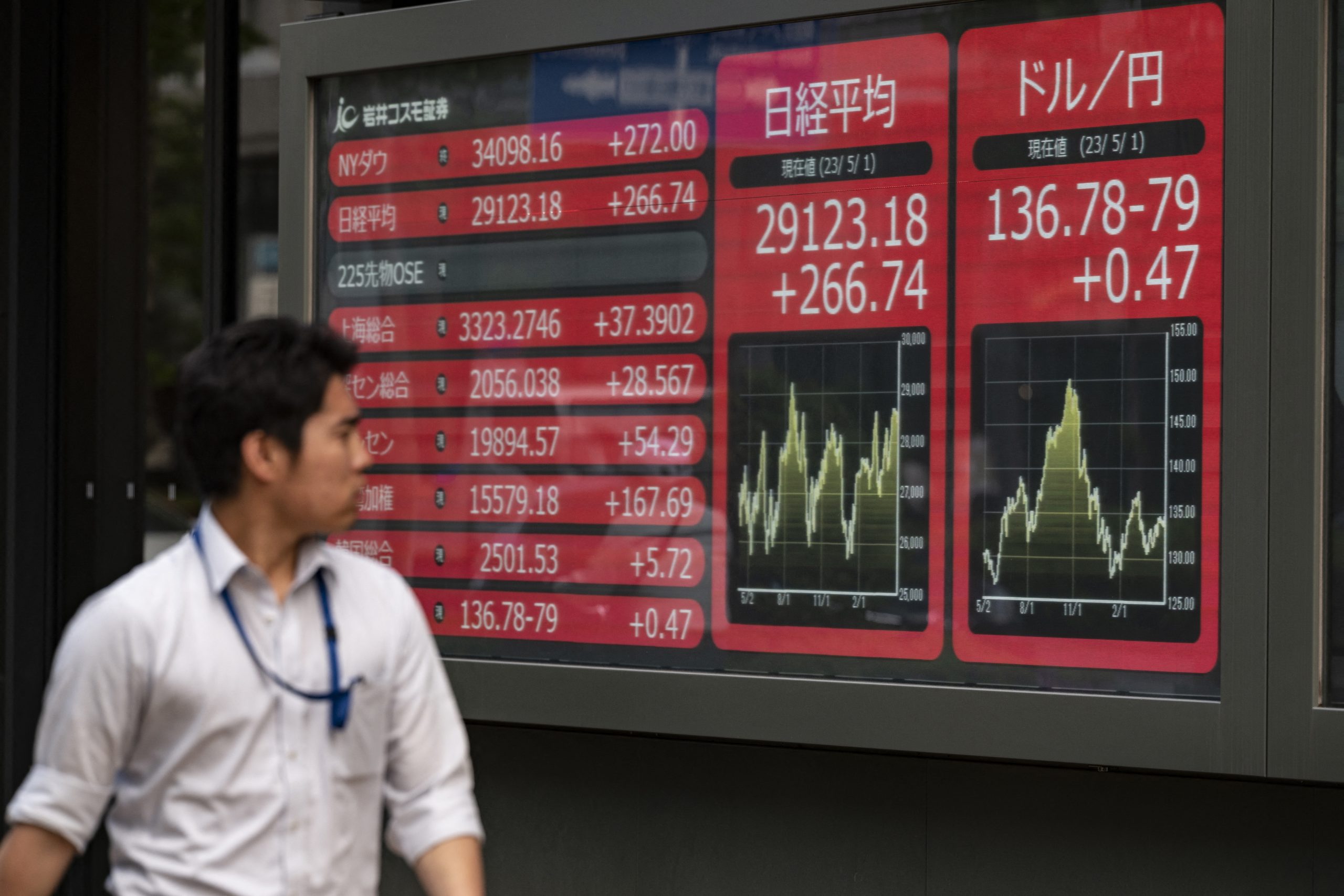(BFM Bourse) – The operator of the Tokyo and Osaka Stock Exchanges intends to publish next year a list of Japanese listed companies which have taken the necessary initiatives to improve their performance on the stock markets as well as their governance practices. A way of putting pressure on them to strengthen the attractiveness of Japanese places.
Japan is clearly outperforming other developed countries on the stock market this year. The Nikkei 225, one of the flagship indices of the Tokyo market, has gained nearly 23% since January 1, much better than the S&P 500 (+13.7%) or the CAC 40 (+7.9 %). Only the Nasdaq, driven by the rebound in tech stocks, surpassed the Tokyo Stock Exchange with a gain of 29%.
Certainly the weakness of the yen, which has plunged by more than 12% against the dollar since January, constitutes an explanatory factor. However, other elements come into play, as we detailed in a previous article. The good performance of the Japanese economy may also have contributed to bringing back onto the radar of foreign investors a country that they had long ignored.
But one of these reasons also comes from the efforts undertaken by the Japanese authorities to push Japanese companies to improve their return to investors and their governance.
The Man research institute notes that the Tokyo Stock Exchange indicated at the end of February that it would ask companies that trade on the stock exchange at a level lower than their book value (a price-to-book ratio less than 1) to deliver a plan to improve their performance. Efforts which seem to have borne fruit. In its monthly survey of fund managers, Bank of America noted that the difference between managers overweighting Japanese stocks and those underweighting them reached 16% in October, a five-year high.
>> Access our exclusive graphic analyses, and gain insight into the Trading Portfolio
A list of good students updated every month
Japan now plans to move up a gear to force listed companies to strengthen their good governance practices and their performance on the stock market. As reported by Bloomberg, the Financial Times and Les Echos, the Japan Stock Exchange (which operates the Tokyo and Osaka stock exchanges) intends to publish next year a list of “good students” in this area, i.e. the groups that have adopted plans to improve their valuation on the market.
“We will renew the list every month but the first list will be published in January… This is the plan,” Hiromi Yamaji told the Financial Times.
Which makes the British daily say that the stock exchange operator will introduce “a radical regime of name and shame”. “Name and shame” consists of designating good and bad students in the hope that the reputational risk pushes the companies being singled out to change their practices in a specific area. The French government, for example, uses it on payment deadlines.
The case of Japan nevertheless differs in the sense that only a sort of honor roll would be published, and the bad students would not be explicitly named. But the Japanese Stock Exchange believes, however, that this would put enough tension on companies that do not have good practices.
“In Japan, peer pressure or nudge (a behavioral science theory which explains that indirect suggestions can lead to changes in behavior, editor’s note) is a very important method to encourage people to move forward,” explains thus Hiromi Yamaji at the Financial Times.
Perverse effects?
“This could result in additional costs for companies, but it will allow companies to be better evaluated by the market by disclosing the necessary information,” judges Chizuru Morishita, researcher at the NLI research institute, quoted by Bloomberg.
Despite the rise on the Tokyo Stock Exchange, Japanese companies remain poorly valued on the stock market as a whole. On average on the Topix, another Tokyo benchmark index, companies trade at 1.3 times their book value compared to 4.1 for those in the S&P 500, according to Bloomberg data from October 11.
Furthermore, if foreign investors become interested in Japan again, the list established by the Japan Stock Exchange could allow them to separate the chaff from the wheat. A Bloomberg article picked up by the Japan Times quotes Zuhair Khan, fund manager at Union Bancaire Privée. According to the latter, even Japanese companies with poor governance have benefited on the stock market from the renewed interest in Japanese stocks. He estimates that 25% have taken proactive measures to improve it while 30% are slowing down to change nothing.
“Today everyone assumes that governance in Japan is improving, and that is undoubtedly the case,” the fund manager said. “But the gap between Japanese companies with good and bad governance continues to widen,” he concludes.
Undesirable effects linked to this “list of good students” principle may nevertheless occur. “When companies do not have a restructuring or alternative investment plan, they could be tempted to embark on share buybacks to boost their value,” underlines Gen Goto, specialist in governance issues at the Graduate Schools. for Law and Politics from the University of Tokyo. “The campaign would then not have much meaning,” he warns.
Julien Marion – ©2023 BFM Bourse
